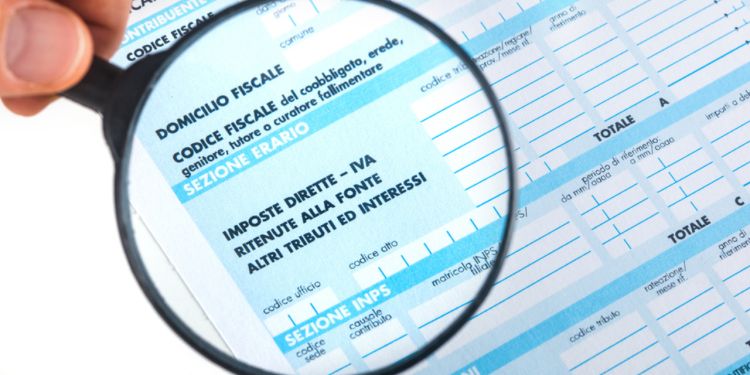
If you're looking to set up a business in Italy, you have to carefully consider taxes. Any company operating legally and legitimately in Italy is subject to the country's tax regime. The authority responsible for taxation is the Agenzia delle Entrate (ADE).
Taxes in Italy can be filed online, at the post office, at banks, or at tax service centers such as CAF centers. Note that procedures may vary depending on the type of business you wish to set up in Italy.
Good to know:
The main taxes Italy levies on companies' income are the regional production tax (Imposta regionale sulle attività produttive - IRAP), the corporate income tax (Imposta sul reddito delle società - IRES) which is fixed and corresponds to 24%. Then there is the individual income tax (Imposta sul reddito delle persone fisiche - IRPEF) which applies to the income distribution among the company's partners. All these taxes must be paid separately.
If you hire employees, you must deduct income tax from their gross monthly salary. The amount must be paid to the Treasury.
It is common to use a tax advisor in Italy to deal with formalities such as tax returns because of the complexity of the Italian tax system.
Corporate tax in Italy
Companies in Italy have to pay two forms of tax on their profits:
- corporate income tax (Imposta sul reddito delle società - IRES),
- regional production tax (Imposta regionale sulle attività produttive - IRAP).
Corporate income tax (IRES) has been deducted since 2016 at a flat rate of 24% on profits. The regional income tax (IRAP) is applied to the value of production, the difference between annual revenues and corporate management costs. While the rate varies depending on the region, IRAP is generally deducted at around 4%.
Companies in Italy are required to file an annual tax return based on the "modello UNICO" document, which includes the three types of taxes to be paid: IRAP, IRES and IRPEF, as well as the annual VAT return. Seek the help of a tax officer to fill in the form and send it to the competent authorities to avoid making mistakes or omitting certain information, as this could considerably impact the deadlines.
Important:
The tax year for companies in Italy runs from 1 January to 31 December. If a company's accounting year differs from the fiscal year, you must respect the official tax reporting period. The modello UNICO must be submitted electronically to the Agenzia delle Entrate by 30 November, and tax payments are made in installments – the first installment of approximately 40% and the second of 60%. The first installment must be paid before June 30 and the second before November 30.
Partnerships in Italy
Partnerships (Società di Persone) are divided into SNCs, global partnership companies (Società in Nome Collettivo) and SASs, limited partnerships (Società in Accomandita Semplice). They are required to complete and submit the tax return of the Redditi società di persone model. Each company must pay IRAP, IRPEF and a contribution to the INPS (social security fund), of the merchant or artisan category, for the general partners calculated on the basis of the proportional profit of the company.
Sole proprietorship (Ditta individuale) in Italy
The sole proprietorship is subject to IRPEF, a tax on individual income or Imposta sul reddito delle persone fisiche, and VAT if it is an ordinary regime (lump-sum entrepreneurs are not subject to VAT). Note that IRPEF is deducted at a progressive rate, varying between 23% for income up to €15,000, 25% for income from €15,000 to €28,000, 35% for income from €28,000 to €50,000, and 43% when benefits exceed €50,000.
Taxable income is determined by the Ateco code, which defines the sector of activity, each code corresponding to a profitability coefficient.
VAT for businesses in Italy
Value-added tax (VAT), IVA (Imposta sul Valore Aggiunto) in Italy, is deducted at 22%. But some goods and services benefit from a different rate, e.g., 4% for basic necessities such as foodstuffs and 10% for tourist and restaurant services.
Hiring, employee protection and salary contributions in Italy
It is advisable to hire a tax specialist or consultant (Consulente del Lavoro) for the preparation and finalization of all social security contributions, tax returns and payroll, as the bureaucracy in Italy is relatively complicated.
You will need to register your employees with the Istituto Nazionale Assicurazione Infortuni sul Lavoro (INAIL) to protect you against the risks of occupational accidents and diseases. Contributions generally vary according to the sector of activity (industry, crafts, services, and others) and are paid by the employer according to the employee's net salary.
Companies must also register their employees with the social security body, the Istituto Nazionale della Previdenza Sociale (INPS). Through employee contributions, this institution provides benefits to employees in the event of illness, maternity, disability, old age, death and unemployment. The INPS also supports self-employed workers grouped into different "casse di previdenza", pension funds, according to their professional category (lawyers, doctors, etc.).
Employers must also pay contributions to the INPS for invalidity, old age and survivors' pensions (IVS), the amount of which is indicated on the employee's pay slip. The rate can vary from 24% to 35% depending on the professional category, size of the company, the employee's age and income, etc. The IVS must also be paid by self-employed expats.
Useful links :
Europe - Practical guide for companies
Chamber of Commerce Milan, Monza, Brianza, Lodi
Agenzia delle Entrate - Investing in Italy
We do our best to provide accurate and up to date information. However, if you have noticed any inaccuracies in this article, please let us know in the comments section below.












Comments